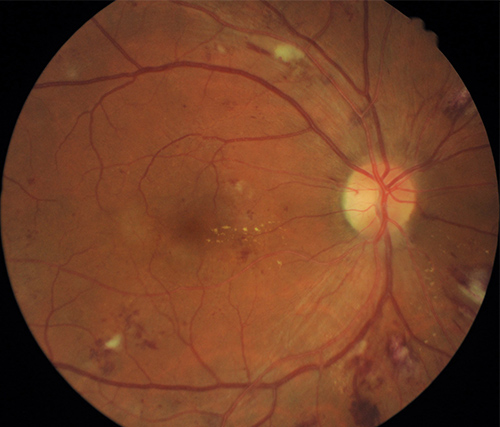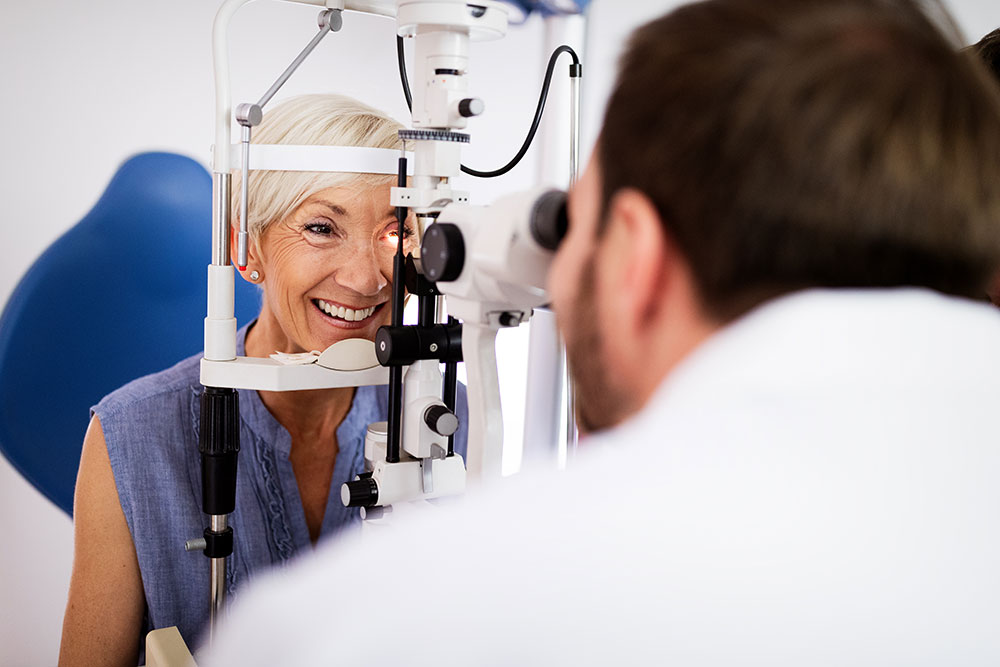Have you tried RetiCap® N?
RetiCap®N is designed to supplement your diet to help support the eye’s need for specific micronutrients. RetiCap®N food supplement is not a substitute for a varied and balanced diet and a healthy lifestyle!

Diabetes is a health condition which affects the processes in the body that make energy. This can have several effects on the body including eye health.
The body uses sugar (glucose) from our food as energy. Sugar is sent to the bloodstream where a hormone called insulin is released to help it reach the body’s cells. With diabetes, the body doesn’t have enough insulin or doesn’t respond to it. This results in the sugar staying in the bloodstream. These consistent high sugar levels can lead to various health problems.
High blood sugar levels can cause damage to the back of the eye (retina). Eye disease and eye problems can occur which if left untreated can lead to blindness.
There continues to be a global rise in diabetes with type 2 diabetes making up the majority of cases. In some cases, individuals may not be aware they have diabetes until they develop symptoms. In this case, it’s essential to be aware of the possible eye problems and symptoms that can develop.
Diabetic retinopathy occurs when constant high blood sugar levels damage the back of the eye (retina). The retina has tiny blood vessels which deliver a constant supply of blood. The damaged vessels cut off the blood supply so the eye begins to form new blood vessels. These new blood vessels don’t develop causing them to leak into the eye.
Symptoms may not be obvious in the beginning but can appear as the condition progresses. Symptoms can include blurry vision or loss of vision, problems seeing in the dark at night, eye floaters or distorted vision.

The right eye retina of a diabetic patient with diabetic retinopathy
In the centre of the retina, there is an area called the macula. The blood vessels in the macula can become damaged causing fluid to leak out. This fluid can build up in the centre of the eye leading to swelling (macular oedema).
Having diabetes can increase your risk of developing Glaucoma. There are several causes of Glaucoma but in most cases, it’s due to a buildup of pressure in the eye. Over time when fluid in the eye is unable to drain it builds up causing increased pressure. This pressure can then damage the optic nerve which connects the eye to the brain.
Cataracts affect the clear disc inside the eye (lens). Changes in the structure of the lens can result in cloudy spots forming. These usually get bigger and limit vision until blindness occurs.
During a comprehensive eye exam, it’s possible to detect changes caused by diabetic retinopathy. If your optometrist notices signs of diabetes it’s important to speak to your doctor about it as soon as you can.

When you have diabetes, changes in your eye health may not be obvious to you. It’s important to attend retinal eye screening for diabetes. This diabetic eye exam looks for the changes in the blood vessels at the back of the eye. This will allow for early treatment to prevent or lessen damage to the eyes.
Diabetics at risk of diabetic retinopathy can avail of diabetic eye screening in the UK. Speak to your medical professional for more information.
Taking care of your eye health can help reduce the likelihood of diabetic eye problems. It’s crucial to control your blood sugar levels as well as blood pressure and cholesterol levels. There are several steps you can take to look after your eye health.
Preventative measures like these will help manage the development of diabetic eye conditions.

RetiCap®N is designed to supplement your diet to help support the eye’s need for specific micronutrients. RetiCap®N food supplement is not a substitute for a varied and balanced diet and a healthy lifestyle!